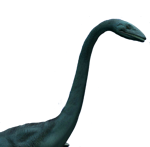Woa-hoa-hoa. I’m not sure this is the seminal work on the topic, but it’s the first time I’ve read about some of this stuff, and it totally changes things.
Miller here postulates the big 5 (big 6, really, if one counts general intelligence) are lost territory for marketers. The big 5, which I have heard about before but never so thoroughly read, are Openness to experience, conscientiousness, aggressiveness, stability, and extraversion. Put together, these 5 can more or less describe any personality. Add in intelligence, and the picture gets clearer.
The core thesis of the book is that most purchases are made with an intent to signal one or more of these traits, the better to signal to potential mates that one possesses these properties, and thus would be a good match for a viewer. Thus, a hybrid smart car is just as much of dick-swinging as a Ferrarri, its just claiming that the currently-pendulous genitalia are smarter as opposed to aggressive. This is only exactly how I have felt my entire life, so finding this book was an excellent thing for me.
On a personal level, this book has been really key for me. I don’t know that it would be for most other people; most people were not meticulously removing vendor labels from their backpacks in high school lest they be associated with, or advertising, a brand. I had never been able to define why, other than saying almost any product is an attempt to grasp status. I had been able to articulate ‘kinds of status’ before, but never anything as clear as this. Sometimes its not about status per se, its about traits. It’s kind of like status–a lot of products are a claim on ‘high status’ because they are associated with such an extreme of this or that trait. But it’s not binary ‘status’, and this is going to change how I look at things.
The problem is that I’m not sure what, exactly, this new information will allow me to do. Although with this mental framework in place, I see this everywhere, I’m not sure what I’d want to do here. I’ve long since divested myself of ‘status’, purposefully, but I see now that that has actually not been just a strong negative-status signal but a positive signal on other traits that I don’t think represent me.
So what do I do? Attempt to re-create myself with more visible signals of the traits I consider good about myself? Continue ignoring it, one day perhaps finding a group of people as consciously sensitive (in the painful sense) to branding as I am? Lord knows I can, I’m used to the looks of confusion. Maybe I should found a company, the brand of which implies anti-brand?
It would seem that the most direct approach for solving the problem, if indeed there is one, is to adjust what I display. But the core thing I spend money on–seeing new places, because I like doing that–implies any number of things, many of them not necessarily congruent with how I see myself. I really have no idea what I’d want to display.
Man, I don’t know. A part of me wishes I could un-read this book. I think things would be simpler.







